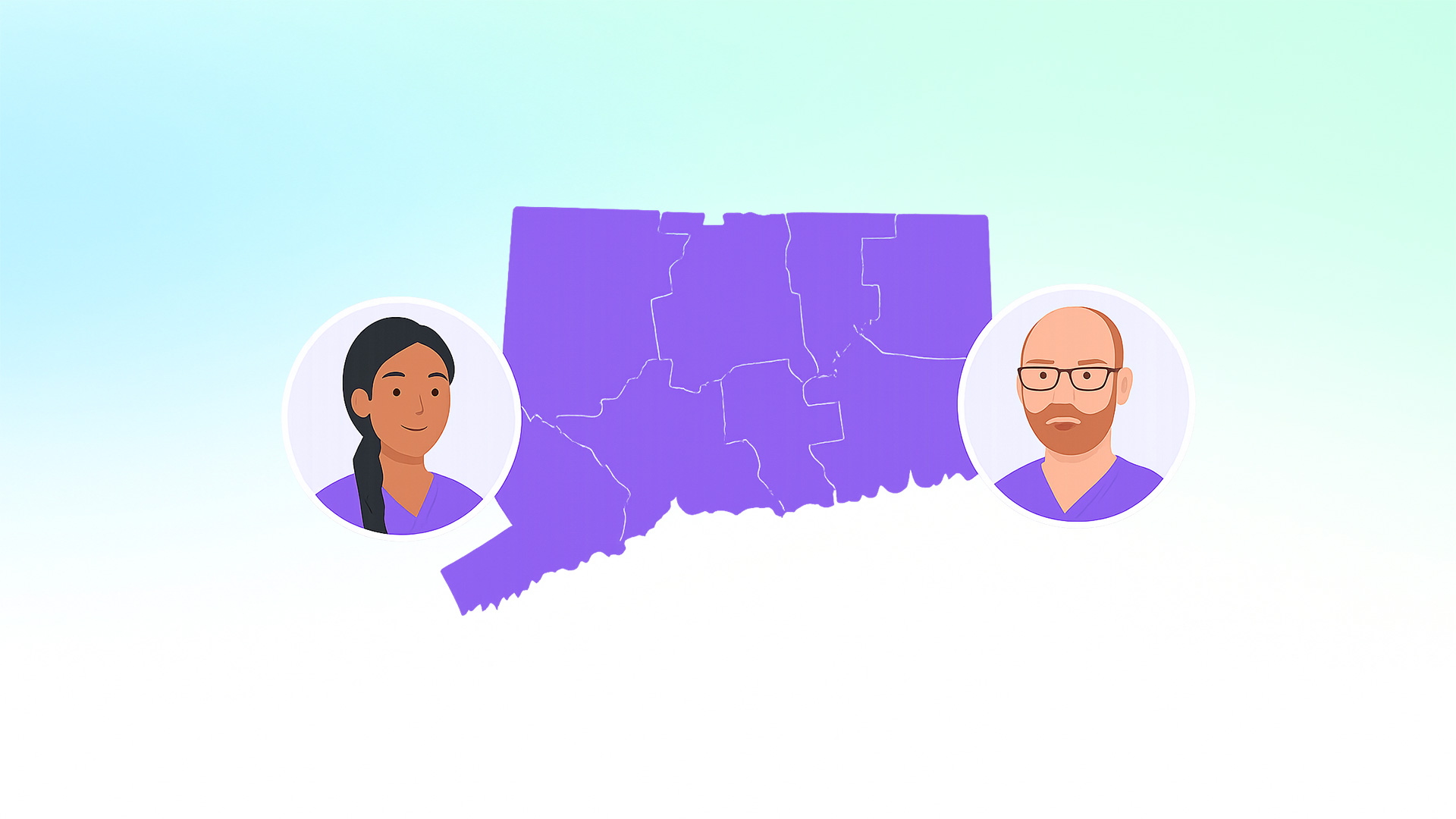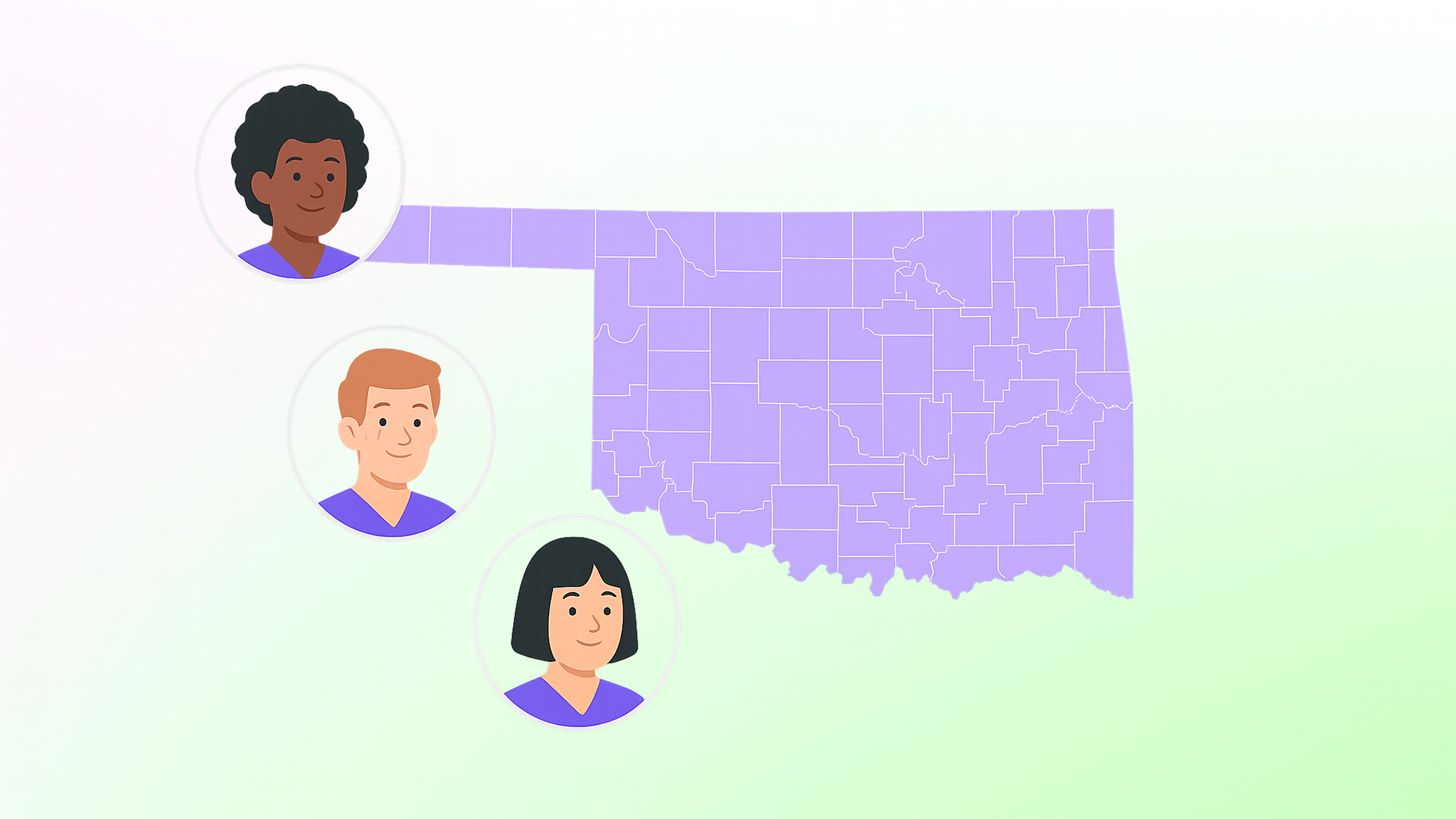TL;DR: Your Connecticut NP Preceptor Search Simplified
- Start early and be strategic: Begin your Connecticut NP preceptor search 3-6 months in advance to navigate the competitive healthcare market and complex credentialing processes at major systems like Hartford Hospital and Yale-New Haven Health.
- Leverage local networks: Connect with the Connecticut Nurses Association, specialty organizations, and healthcare leaders to build professional relationships that often lead to successful clinical placements before you need them.
- Focus on what preceptors want: Demonstrate strong communication skills, professional initiative, and genuine passion for advancing healthcare outcomes—qualities that Connecticut preceptors consistently value in potential students.
- Don't overlook office managers: Contact practice administrators and office managers directly, as they often coordinate clinical placements and understand their facility's capacity for students better than anyone else.
- Know when to seek professional help: If you're facing timeline pressure, limited responses to outreach, or administrative overwhelm, professional placement services can streamline your search and connect you with vetted Connecticut preceptors who are actively seeking students.
It's 11 PM on a Tuesday, and you're staring at your laptop screen, scrolling through the same healthcare facility websites you've visited dozens of times. As a nurse practitioner student in Connecticut, you've spent weeks—maybe months—reaching out to potential preceptors, only to receive silence or polite rejections. Your clinical rotation deadline is approaching fast, and the stress is keeping you awake at night.
You're not alone in this struggle. Connecticut's competitive healthcare market presents a complex landscape for NP students:
- High competition: Multiple nursing programs competing for limited preceptor availability.
- Geographic challenges: Balancing quality clinical experiences with commutable locations.
- Specialty limitations: Finding preceptors in your desired focus area, whether primary care, acute care, or operating room settings.
Precepting remains a crucial part of nursing education, providing hands-on clinical experiences under the guidance of experienced healthcare professionals. These relationships are essential for the advancement of nursing skills and knowledge, ultimately improving healthcare outcomes for Connecticut's diverse patient population. From Hartford's renowned hospital systems to New Haven's academic medical centers, qualified preceptors serve as role models and mentors, shaping the future of nursing in the Constitution State.
However, finding the right Connecticut NP preceptor shouldn't consume months of your valuable time—time you need for coursework, your current nursing position, and your personal life. Connecticut offers a wide range of clinical opportunities from hospitals to community health centers, and there are strategic approaches to streamline your search that can transform your experience from frustrating to successful.
In this guide, we'll walk you through Connecticut's unique healthcare landscape, proven strategies for connecting with quality preceptors, and what top preceptors actually look for in NP students. More importantly, we'll show you when it's time to stop struggling alone and leverage professional resources that have helped thousands of students secure their clinical placements quickly and efficiently.
If you're in a hurry to secure your placement, you can skip ahead and create your free NPHub account now to browse vetted Connecticut preceptors who are actively seeking qualified students—or continue reading to master the complete strategy for finding your ideal clinical match.
Understanding Connecticut's Healthcare Landscape and Preceptor Reality
Connecticut's healthcare ecosystem offers both exceptional opportunities and significant challenges for NP students seeking clinical placements. The Constitution State's strategic location between New York and Boston creates a unique environment where world-class medical facilities compete for the same pool of qualified preceptors.
Connecticut's Major Healthcare Hubs:
- Hartford: Home to Hartford Hospital and Connecticut Children's Medical Center, offering diverse clinical experiences in acute care and specialty services.
- New Haven: Yale-New Haven Hospital system provides prestigious academic medical center opportunities across multiple specialties.
- Bridgeport & Stamford: Growing healthcare markets with expanding primary care and urgent care facilities.
- Waterbury: Regional medical centers focusing on community health and family medicine.
These locations offer clinical experiences spanning primary care, acute care, operating room settings, and specialized practices, including women's health, pediatrics, and mental health services. However, Connecticut's proximity to major metropolitan areas creates intense competition among nursing students from multiple states.
The Preceptor Shortage Reality:
The nationwide NP preceptor shortage significantly impacts Connecticut students. Research reveals that clinical rotations often face delays due to complex institutional barriers and preceptor availability issues. In Connecticut specifically, students encounter:
- High student-to-preceptor ratios: Multiple nursing programs competing for limited clinical sites.
- Administrative complexity: Hospital system credentialing processes can take weeks or months.
- Geographic limitations: Quality preceptors may require longer commutes, especially in rural areas.
- Specialty constraints: Finding preceptors in specific focus areas requires extended planning.
Strategic Approaches to Securing Connecticut Preceptors
Finding the right Connecticut preceptor requires a targeted approach that goes beyond generic outreach. Success comes from understanding the local healthcare ecosystem and building genuine professional relationships within Connecticut's tight-knit medical community.
Leverage Connecticut's Healthcare Networks:
Connecticut's major healthcare systems offer structured pathways for NP students. Hartford Hospital, Yale-New Haven Health, and Trinity Health of New England often have established preceptor programs. However, don't overlook smaller community health centers and primary care practices—they frequently provide more personalized clinical experiences and may have greater flexibility in their selection process.
Start by researching each system's student placement policies and contacting their clinical education directors directly. Many Connecticut hospitals have dedicated staff who coordinate with nursing schools and can guide you through their specific requirements and application timelines.
Build Strategic Professional Connections:
- Connecticut Nurses Association (CNA): Attend local chapter meetings to network with experienced nurse practitioners who may serve as preceptors or provide referrals.
- Connecticut Organization of Nurse Executives: Connect with nursing leadership who often know which facilities are actively seeking students.
- Specialty organizations: Join Connecticut chapters of AANP, pediatric nursing associations, or women's health groups based on your focus area.
Contact Office Managers and Practice Administrators:
While many students focus solely on reaching out to potential preceptors, connecting with office managers can be equally effective. These healthcare professionals often coordinate clinical placements and understand their practice's capacity for students. They can provide valuable insights about timing, requirements, and whether their preceptors are currently accepting students.
Professional Networking Strategies:
Build relationships before you need them. Attend Connecticut healthcare conferences, participate in continuing education events, and engage with local nursing leaders on professional platforms. Many successful placements result from relationships established months before the actual rotation begins.
Remember that Connecticut's healthcare community values collaboration and professional development. Position yourself as someone committed to advancing nursing excellence in the state, not just completing a requirement.
Consider Professional Placement Services:
When individual outreach becomes time-consuming and overwhelming, professional placement services can streamline your search significantly. These services maintain established relationships with Connecticut preceptors across multiple specialties and handle the administrative coordination that often delays placements.
Ready to accelerate your Connecticut preceptor search? Create your free NPHub account to access our network of vetted Connecticut preceptors who are actively seeking qualified NP students for clinical rotations.
What Connecticut NP Preceptors Seek and Maximizing Your Clinical Experience
Understanding what Connecticut preceptors value in NP students can significantly improve your chances of securing quality clinical placements. Research on preceptor selection reveals that successful preceptor-student relationships depend on specific qualities and communication approaches that foster effective learning environments.
Essential Qualities Connecticut Preceptors Value:
Connecticut preceptors consistently seek students who demonstrate strong communication skills and professional initiative. They value students who show genuine passion for advancing healthcare outcomes and possess the emotional skills necessary for patient care collaboration. Your ability to engage in reflective practice and demonstrate responsibility in clinical settings directly impacts preceptor willingness to accept students.
Key attributes that stand out:
- Professional communication: Clear, respectful interaction with healthcare teams and patients.
- Clinical curiosity: Eagerness to learn health assessment techniques and care management protocols.
- Adaptability: Flexibility in diverse clinical environments, from primary care to acute care settings.
- Initiative: Proactive approach to learning and seeking guidance when needed.
Demonstrating Your Value:
When reaching out to potential preceptors, emphasize your nursing experience and commitment to excellence in patient care. Connecticut preceptors appreciate students who understand the responsibility inherent in clinical practice and show motivation to contribute meaningfully to their healthcare teams.
Maximizing Your Connecticut Clinical Experience:
Connecticut's diverse patient populations offer exceptional learning opportunities across specialties. Whether you're placed in Hartford's urban medical centers or rural primary care practices, focus on developing expertise in comprehensive health assessment and care management skills that will serve your future practice.
Strategic Learning Approaches:
- Embrace diversity: Connecticut's multicultural communities provide rich learning experiences in culturally competent care.
- Build professional networks: Establish relationships with healthcare leaders who may become future colleagues or mentors.
- Focus on specialty development: Use rotations to explore Connecticut's strong healthcare sectors, including women's health, pediatrics, and acute care.
Connecticut's proximity to major academic medical centers and innovative healthcare systems positions you to observe cutting-edge practices and establish connections that extend beyond graduation.
When to Seek Professional Help and Your Next Steps
After weeks of outreach without success, many NP students realize that individual searching isn't yielding results fast enough. Recognizing when to pivot from DIY approaches to professional placement services can save crucial time and reduce stress during your program.
Clear Signs It's Time for Professional Support:
- Timeline pressure: Your rotation start date is approaching within 8-12 weeks.
- Limited responses: Fewer than 20% of your outreach attempts receive replies.
- Administrative overwhelm: Credentialing and paperwork requirements are consuming study time.
- Geographic constraints: Suitable preceptors are beyond reasonable commuting distance.
How Professional Services Streamline Your Search:
Marketplace services like NPHub maintain established relationships with Connecticut preceptors across multiple specialties and healthcare systems. Rather than starting from zero, you access a network of vetted professionals who are actively seeking students. These services handle the complex coordination, paperwork, and communication that often delays individual placements.
The expertise these platforms provide extends beyond simple matching—they understand Connecticut's specific requirements, hospital system policies, and can navigate the administrative processes that overwhelm students juggling coursework and full-time nursing positions.
Your Immediate Action Plan:
If you're still in early planning stages: Continue networking and building Connecticut healthcare connections while creating a backup strategy.
If time is becoming critical: Prioritize professional placement services that can accelerate your search while you maintain your current outreach efforts.
For urgent situations: Focus entirely on established placement networks that offer immediate access to available preceptors.
Whether you're planning ahead or facing a time crunch, it's worth exploring what placement options are available to you. Create your free NPHub account to see Connecticut preceptors in our network and understand all the resources at your disposal as you navigate this important step in your NP journey.
Frequently Asked Questions About Finding Connecticut NP Preceptors
How far in advance should I start looking for a Connecticut NP preceptor?
Most successful students begin their preceptor search 3-6 months before their rotation start date. This timeline accounts for Connecticut's competitive healthcare market, hospital system credentialing processes, and the administrative requirements that can take weeks to complete. Starting early gives you more options and reduces stress as your clinical rotation approaches.
Are Connecticut NP preceptors paid for their teaching services?
Compensation varies significantly across Connecticut. While some healthcare systems and community health centers provide financial compensation or continuing education credits, many preceptors volunteer their time as part of their commitment to advancing nursing education. Some placement services offer incentives to preceptors, but it's not universal across all clinical sites in the state.
Can I work with physicians instead of nurse practitioners as preceptors in Connecticut?
This depends on your specific NP program requirements. Some Connecticut nursing schools may accept physicians, physician assistants, or other qualified healthcare professionals as preceptors, while others specifically require nurse practitioners with certain years of experience. Always verify your program's guidelines before reaching out to potential preceptors to ensure they meet your school's criteria.
About the author
- NPHub Staff
At NPHub, we live and breathe clinical placements. Our team is made up of nurse practitioners, clinical coordinators, placement advisors, and former students who’ve been through the process themselves. We work directly with NP students across the country to help them secure high-quality preceptorships and graduate on time with confidence. - Last updated
August 4th, 2025 - Fact-checked by
NPHub Clinical Placement Experts & Student Support Team - Sources and references
Find a preceptor who cares with NPHub
Book a rotation.webp)








.webp)


.webp)



.webp)